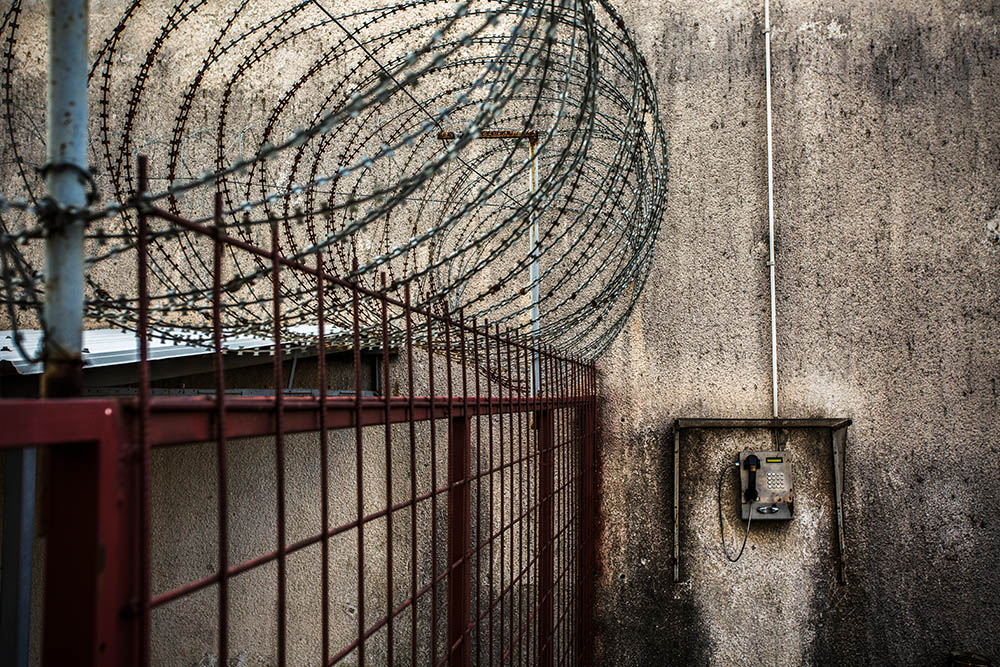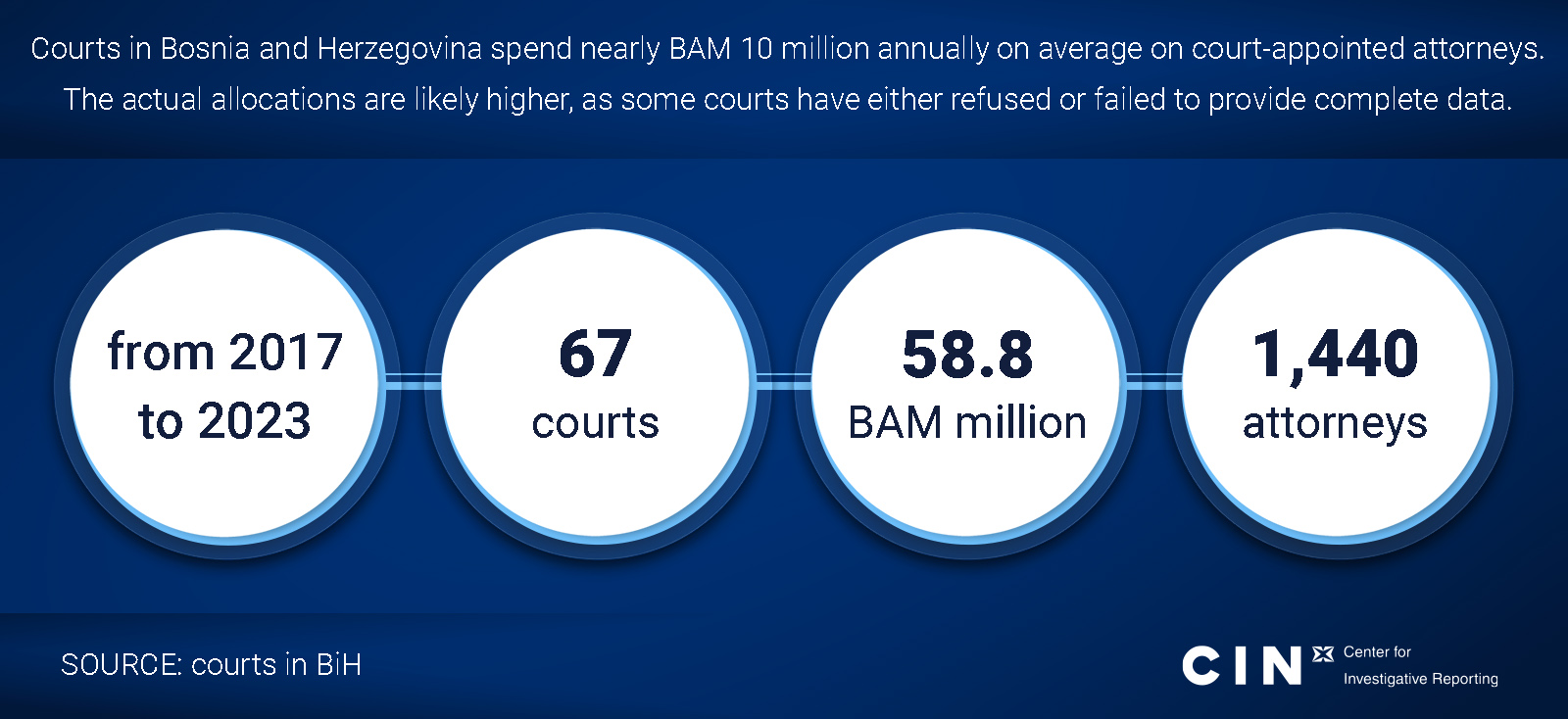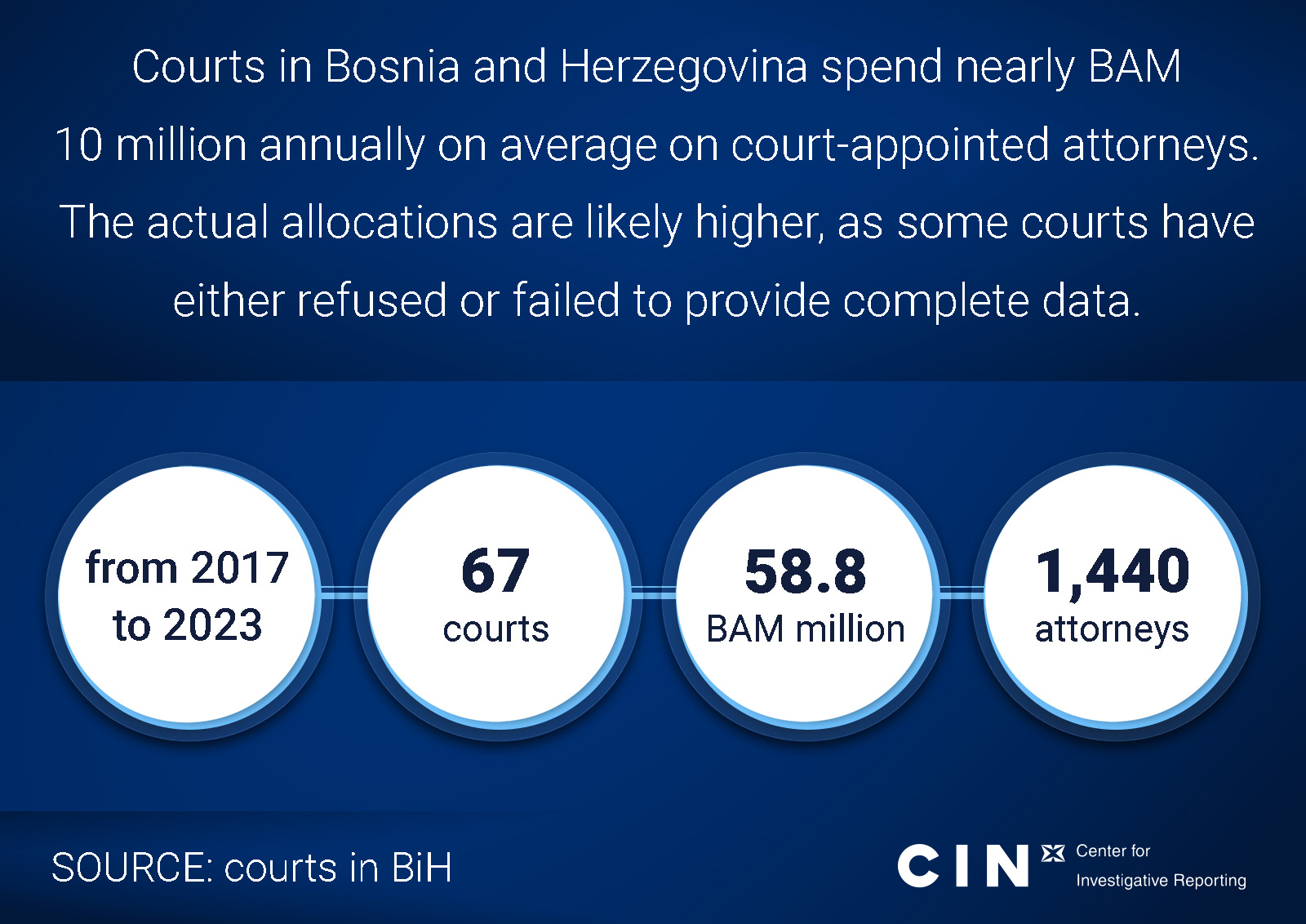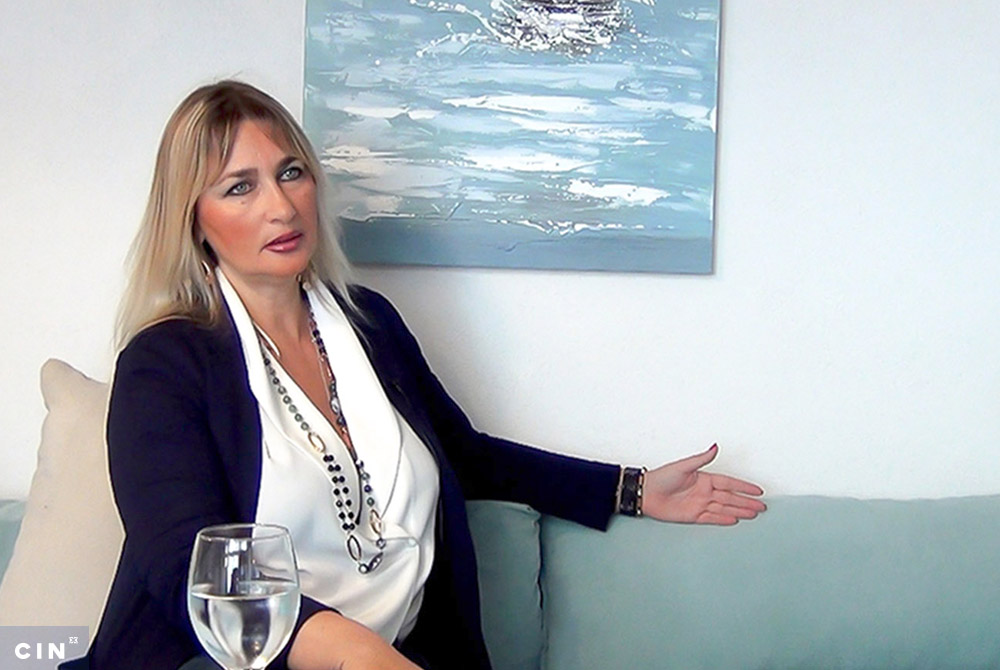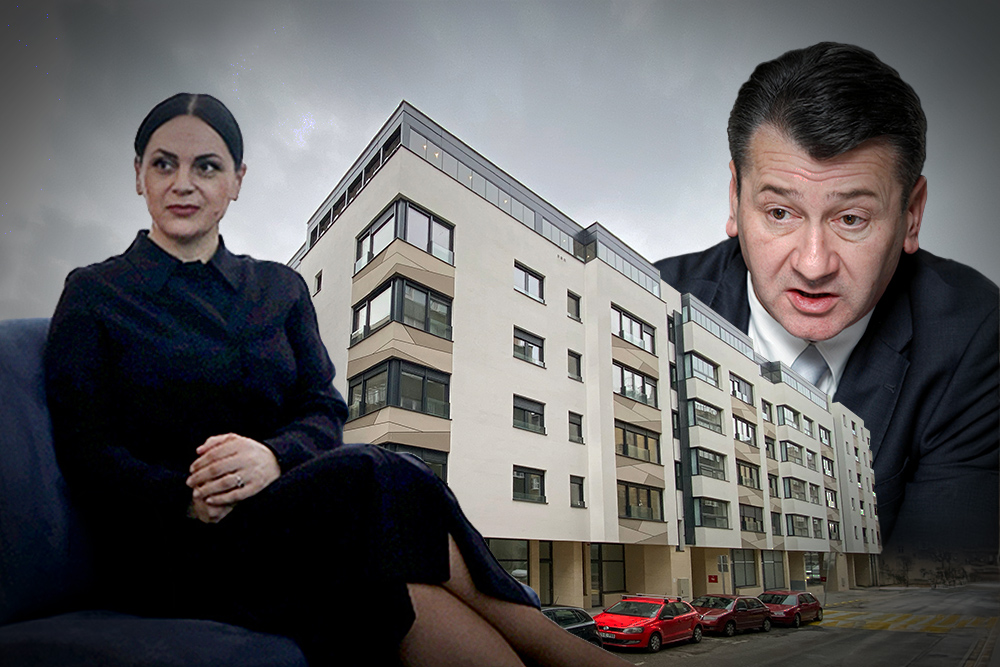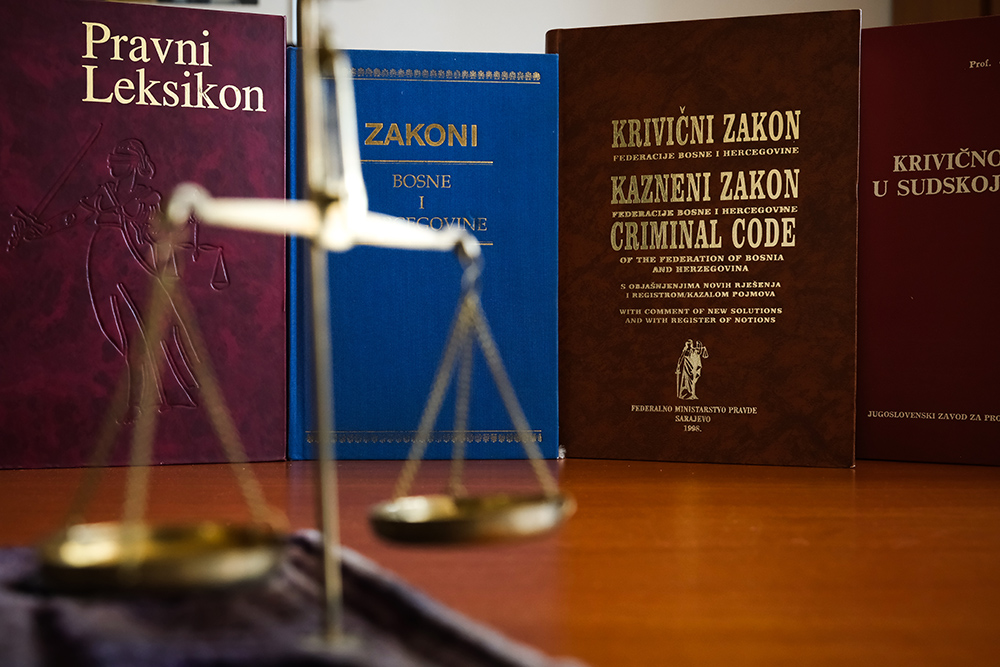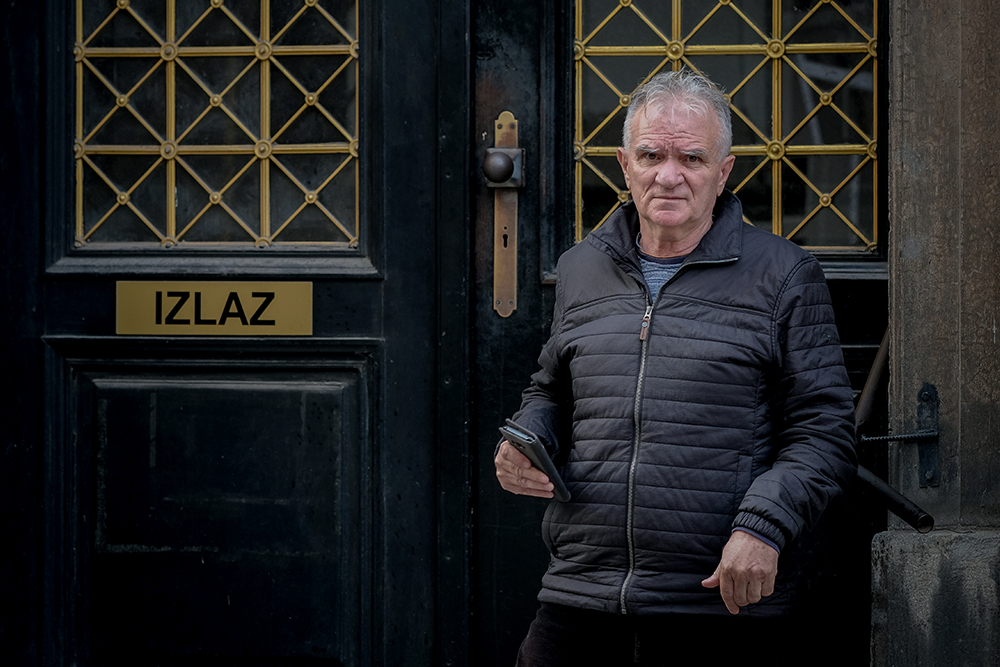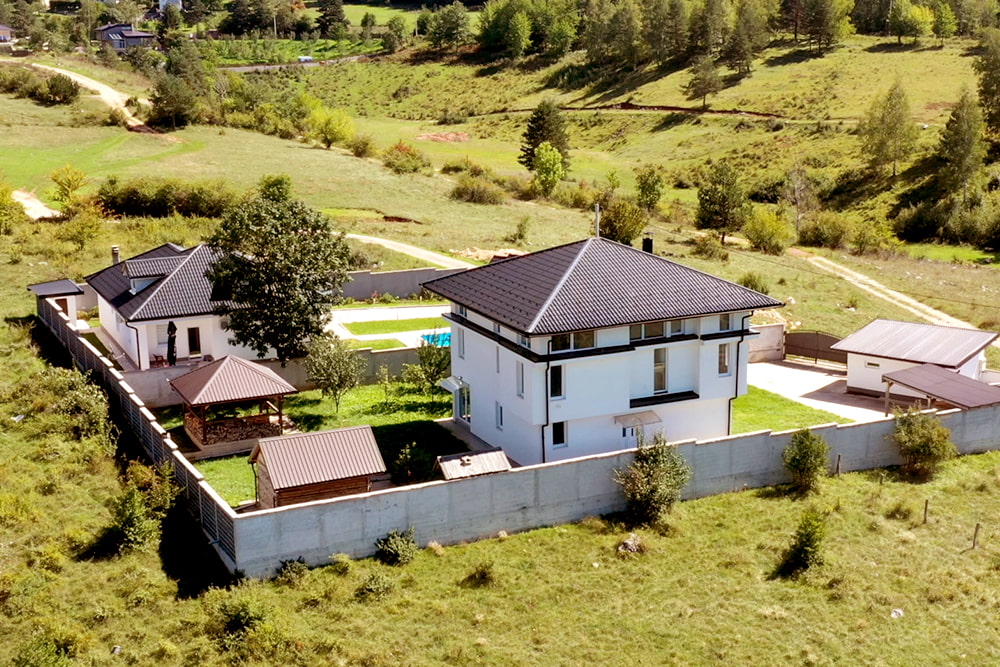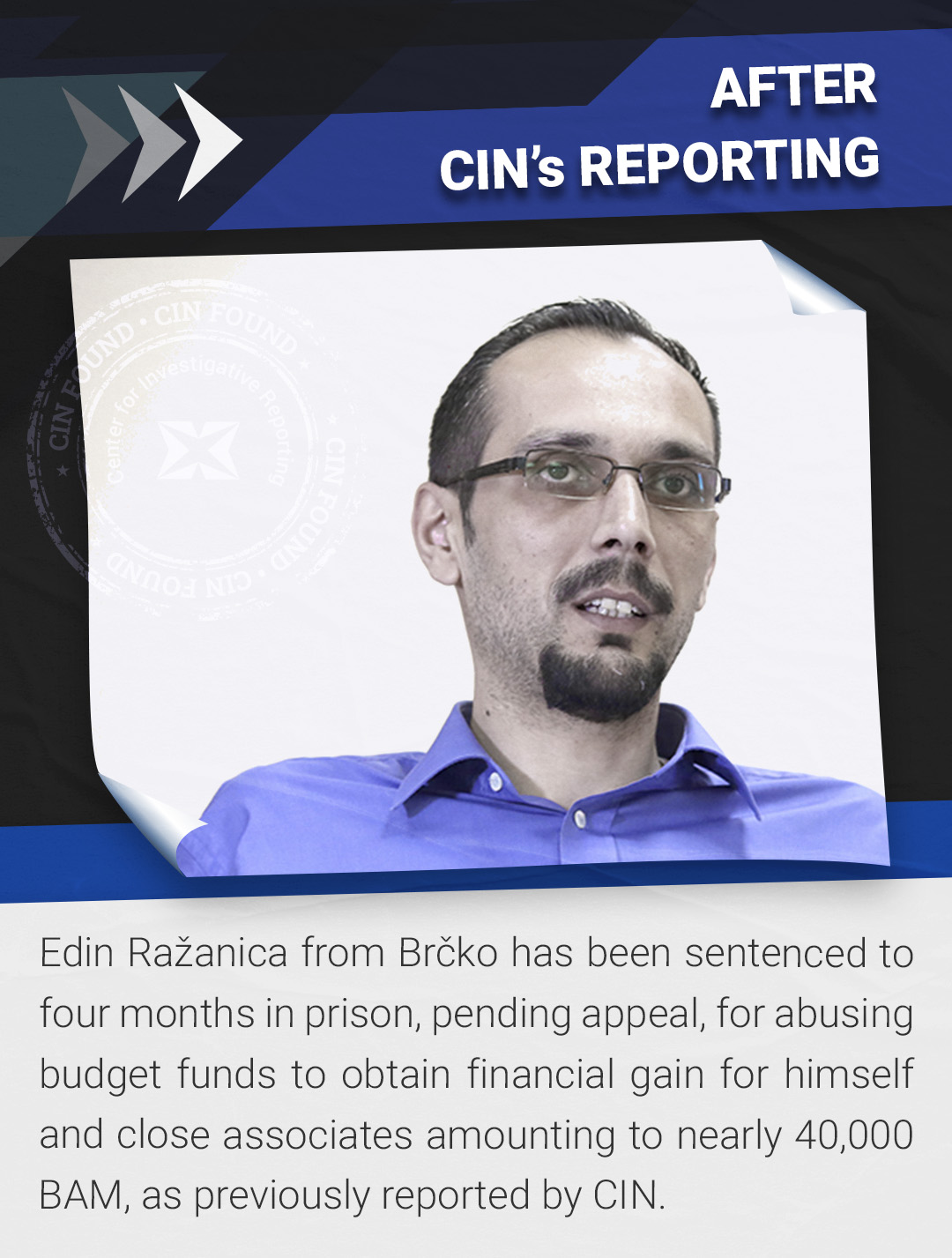Sarajevo-based attorney Omar Mehmedbašić has garnered the highest trust as a court-appointed defense counsel for 17 years. Over the past six years, Mehmedbašić was a defense counsel in more than 600 cases across three courts, earning at least BAM 2.9 million.
Additionally, two other attorneys in this period have also earned millions while serving as court-appointed defense counsels: Stjepan Ćaćić from Tuzla earned BAM 1,5 million, while Zlatko Ibrišimović from Sarajevo earned BAM 1.1 million. Ćaćić was involved in more than 300 cases, and Ibrišimović in at least 260 cases.
From 2017 to the end of 2022, at least BAM 58.8 million was allocated for court-appointed defenses. Despite over 1,440 defense attorneys being engaged in ex officio defenses, a sixth of this amount was paid out to ten attorneys. The amounts earned by the attorneys are likely even higher, as not all courts have submitted data to CIN.
Mehmedbašić, Ćaćić, and Ibrišimović are usually appointed as defense counsels by judges after being chosen by suspects and defendants who, under the current regulations in the Federation of Bosnia and Herzegovina, have the right to do so. They did not want to talk to CIN’s reporters.
In addition to these three, among the top ten highest-paid court-appointed attorneys are Dijana Hasić Kamarić, Muhidin Kapo, Selman Zijadić, Ahmed Fejzić, and Izet Baždarević from Sarajevo, Azijada Mujkić from Zenica, and Bakir Hećimović from Tuzla.
For years, this small group of attorneys receiving a significantly larger number of court-appointed cases compared to their colleagues prompted the Sarajevo Regional Bar Association to propose amendments to the law. They proposed that only judges should appoint ex officio defense counsels in order from the list of registered ex officio attorneys.
This practice has already taken root in the Republika Srpska (RS). Following amendments to the Criminal Procedure Code in 2021, it was stipulated that only the court presidents could appoint ex officio defense counsels.
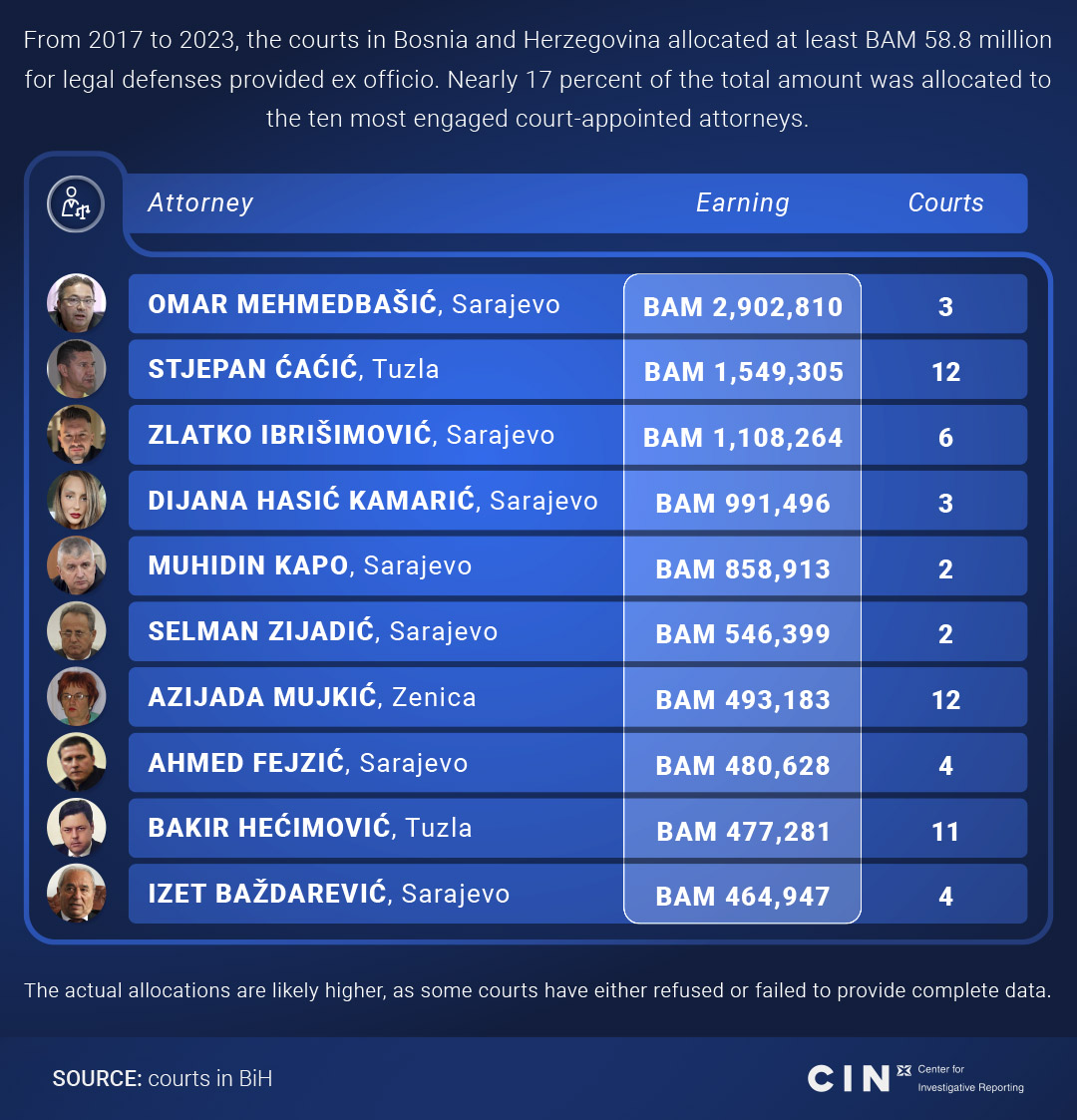
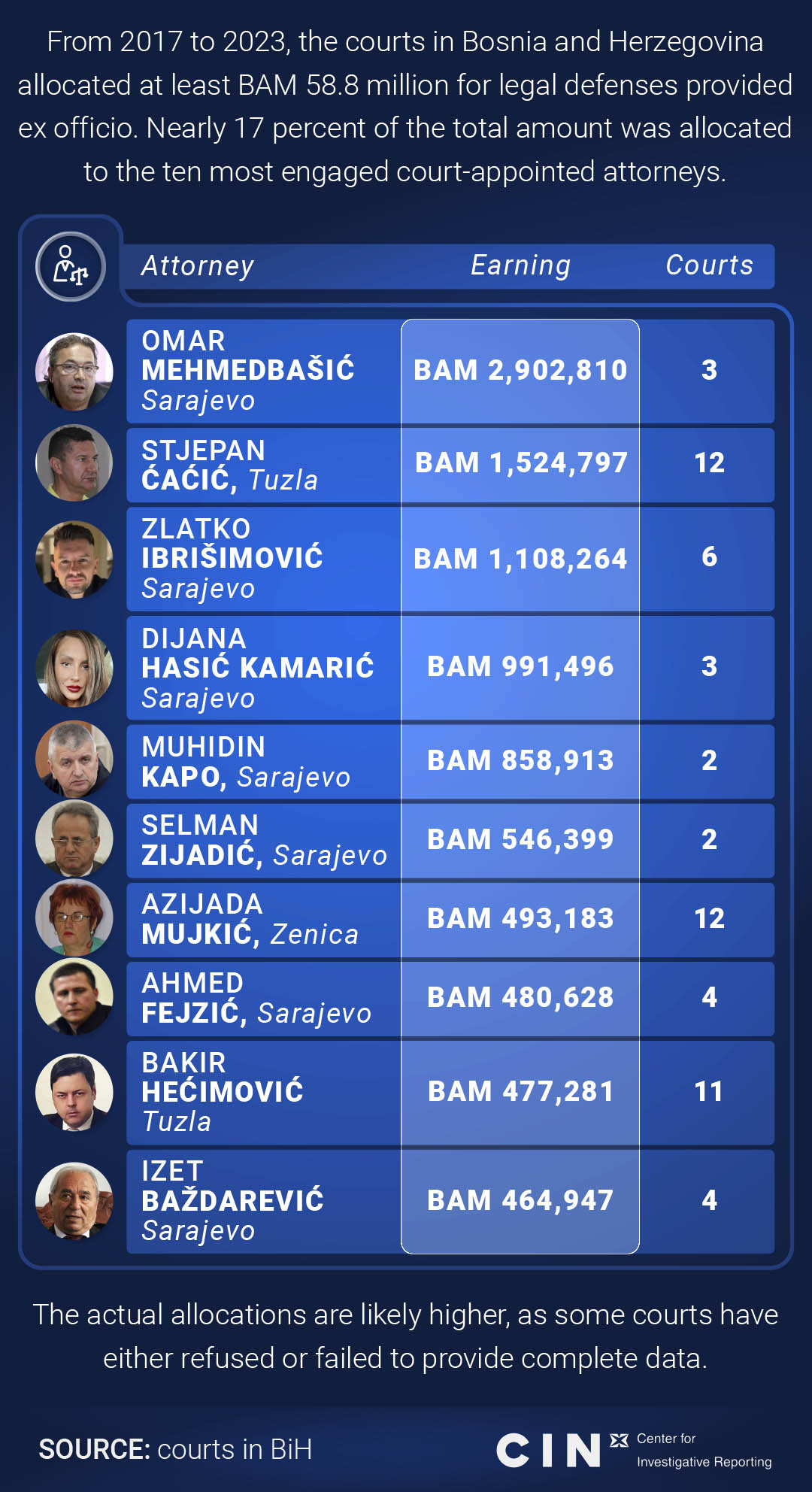
With new amendments comes a greater workload
For over a decade, CIN has been gathering data on payments made by citizens of Bosnia and Herzegovina for court-appointed lawyers. Based on the gathered data, since 2005, Mehmedbašić, along with his colleagues from Sarajevo – Muhidin Kapo, Selman Zijadić, and Izet Baždarević – has consistently ranked among the top ten highest-paid individuals.
Kapo and Baždarević attribute their high salaries to their lengthy careers in the judiciary, which have made them well-known figures in the public eye.
Kapo has been practicing law for over 40 years, and in the past six years alone, he earned a minimum of 858,000 marks while providing legal defense as court-appointed defense counsel at the Municipal and Cantonal Courts in Sarajevo. He mainly worked at the Municipal Court in Sarajevo, where he was chosen as legal counsel by the suspects and the accused in 86 cases. Additionally, he was assigned as a legal counsel by court decision 12 times.
He attributes this to his dedication to assisting everyone to the best of his ability, which he believes has spread through word of mouth. “Clients communicate with each other in detention units and prisons, exchanging experiences, which leads to others asking [for me].”
Baždarević mentions that parties often select him because they had previously encountered him during his time working as a judge. He earned BAM 464,000 representing clients ex officio in the courts over six years. At the Municipal Court in Sarajevo alone, he was acting as court-appointed counsel in 131 cases, with clients choosing him as their legal representative in 98 of those cases.
Zijadić earned BAM 546,000 during the same period. He was chosen as a defense counsel by clients in 79 cases, while the court appointed him only seven times. He declined to speak with reporters, briefly stating that “whatever the law may be, it must be respected”.
Under the FBiH Criminal Procedure Code, individuals who cannot afford an attorney will receive one ex officio. They can choose one from the presented list of defense counsels, or if they do not do so, one will be assigned to them by the presiding judge.
However, due to the disparity in the number of cases assigned to attorneys willing to provide ex officio defense, there is a growing demand from lawyers for the regulations to be amended.
The Sarajevo Regional Bar Association recently submitted an initiative to amend the Law, which they forwarded to the Federal Ministry of Justice. The proposal suggested that instead of suspects and accused persons choosing their defense counsels, judges should assign attorneys in order from the list.
According to Armin Mušija, the president of the bar association, these amendments would address a longstanding issue: “disparity in the number of cases defended by individual attorneys compared to other attorneys providing ex officio defense”.
It was also proposed to eliminate the possibility for employees of the free legal aid institutes to provide ex officio representation in cases.

They have garnered support for the proposed amendments from the Municipal and Cantonal Courts in Sarajevo, which for years ranked at the top by allocations for ex officio defenses.
Due to the large number of cases these individual attorneys handle, it often happens that they send a substitute to the hearing.
“They simply cannot physically be in two or three places at the same time. And then they simply have to request substitute lawyers”, says Denis Kurtović, president of the Criminal Department of the Municipal Court in Sarajevo, adding that this is a common practice permitted by law.
However, not all attorneys agree with the proposed amendments.
“A suspect has the right to choose from the list of attorneys who he believes would best protect his interests”, says Jasmin Abdagić, president of the Regional Bar Association from Bihać.
His colleague from Tuzla, Bakir Hećimović, holds that the suspect’s right to independently choose an attorney is guaranteed by the European Convention on Human Rights. He has been practicing law for eight years, and in the last six, he has earned BAM 477,000 for providing ex officio defense.
Bekir Gavrankapetanović, president of the Bar Association of the Federation of Bosnia and Herzegovina, disagrees with these statements: “I believe that the right to a fair trial is not violated as soon as you are provided with a professional defense attorney”.
On the other hand, in Kapo’s view, these amendments would not solve anything. “It can be abused. Let’s consider a situation where the court assigns a defense attorney to an individual, and the client feels that they cannot agree on the defense strategy, hence he does not want this attorney to represent him. How should this be addressed?”
CIN previously reported on many cases of abuse within the system of assigning court-appointed defense attorneys, involving both police officers and judges who suggest to parties whom to choose from the list of defense attorneys. Lawyers, judges, and convicts have testified about this issue.
“There is currently no order in that regard (…) I can assert – without reliable information though – that some lawyers are privileged”, says Baždarević, adding that “there is a need to establish order” when assigning court-appointed defense counsels.
In 2020, the FBiH Bar Association submitted a similar proposal to the High Judicial and Prosecutorial Council of Bosnia and Herzegovina (HJPC) to amend laws at both the FBiH and state levels. However, even after four years, no concrete solutions have been put in place. The High Judicial and Prosecutorial Council (HJPC) and the Ministry of Justice of Bosnia and Herzegovina briefly responded that these initiatives are still under consideration.
With the 2021 amendments to the RS Code of Criminal Procedure, defendants and suspects no longer have the opportunity to choose the attorneys who will represent them ex officio. Instead, defense counsels are assigned by the presidents of the courts, following the order of the list provided to them by the RS Bar Association.
Milenko Milekić, the president of the Basic Court in Banja Luka, explains that attorneys who are unable to take on a defense when their turn comes are contacted when the next case is brought before the court.
“All attorneys are involved, which means different attorneys handle cases, but there is no accumulation where one attorney has more than one case”, Milekić explained.
His colleagues Danijela Elenkov and Slavica Tadić, presidents of the basic courts in Prijedor and Zvornik, operate on the same principle. They told reporters that before the amendments, in their courts it was mostly judges who assigned ex officio defense counsels.
“To avoid any potential manipulations, we consistently followed the order of the attorneys,” says Tadić.
The interviewed presidents of the Bar Associations in the RS also express satisfaction with the amendments to the law that prevent favoritism towards specific defense attorneys.
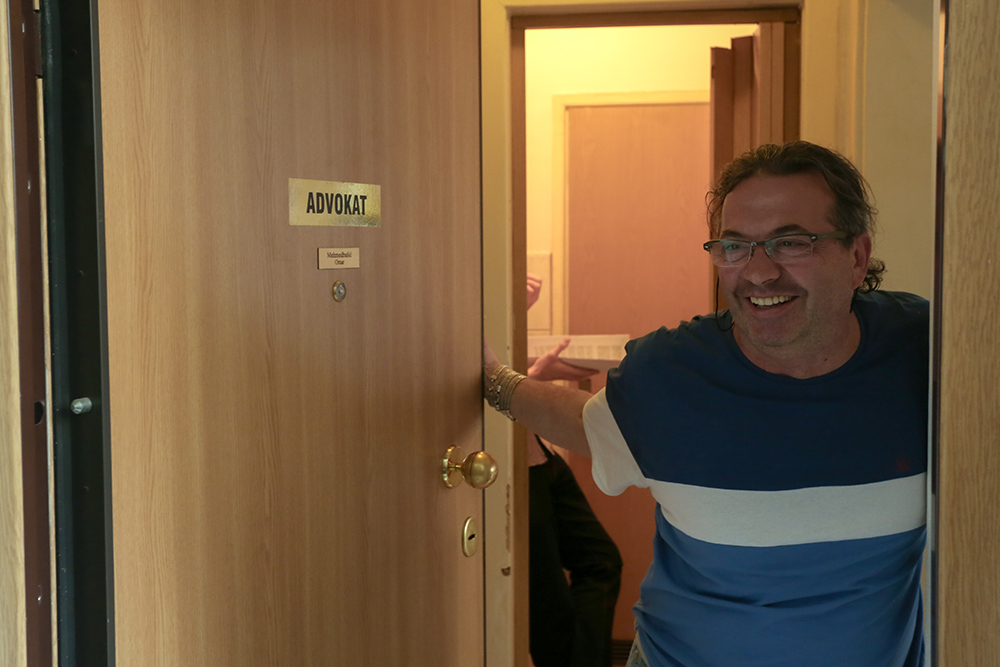
Same Attorneys Remain Top Earners for Years
CIN reporters requested information from the courts in Bosnia and Herzegovina regarding the individual fees paid to each attorney hired ex officio, as well as the methods used for their selection, for the period from 2017 to 2023. Of the 73 courts, 67 of them sent the data on the compensations paid.
For years, courts in the Federation have been allocating more money for court-appointed attorneys compared to courts in Republika Srpska and Brčko District. In the Federation, 43 courts allocated BAM 42.7 million over six years, while 22 courts in the RS paid BAM 4.7 million for this purpose. This amount is likely higher, as the basic courts in Gradiška, Novi Grad, Doboj, and Modriča refused to provide the data. The Supreme Court of the RS had no allocations for ex officio defense during the mentioned period.
The Basic Court in Prnjavor provided the aggregate amounts of compensation for all six years, while the Cantonal Court in Sarajevo also sent the total amounts for 2017, 2018, and 2019.
Some courts did not provide information on how attorneys were assigned, such as how many times clients chose their defense counsels versus how many times the court assigned one. Of the top ten courts that allocated the most funds for ex officio defense counsels in the past six years, six of them provided this information.
According to available data from the municipal courts in Sarajevo and Zenica, the cantonal courts in Bihać, Tuzla, and Zenica, as well as the Court of Bosnia and Herzegovina, it appears that the accused and suspects commonly chose their legal representation. This was the case in 5,246 cases, while courts appointed defense counsels in 1,519 cases. These courts paid out BAM 26.6 million for ex officio defense.
In addition to Sarajevo, in three other cantons, the same lawyers have been earning the highest amounts for ex officio representation. In the Una-Sana canton it is Hasan Veladžić. He was engaged at least 37 times as an ex officio defense attorney in five courts in BiH, where he earned around BAM 190,000.
Azijada Mujkić, the seventh highest-paid lawyer in Bosnia and Herzegovina, is also the highest-paid in the Zenica-Doboj Canton. She acted as court-appointed defense attorney in at least 230 cases in 12 courts and earned BAM 493,182. The highest paid in Canton 10 is lawyer Goran Bradarić. Since 2017, he has been ex officio defense counsel in 60 cases across five courts, earning BAM 99,612.
Stjepan Ćaćić from Tuzla Canton is the second highest-paid attorney in Bosnia and Herzegovina. Defending clients in this capacity in 320 cases across 12 courts, he earned BAM 1.54 million. He is a former cantonal prosecutor, who has been practicing law for the past ten years.
Irena Pehar from Herzegovina-Neretva Canton and Esad Muminović from Bosnia-Herzegovina Canton are the highest-paid in their respective cantons. Pehar earned BAM 198,349 while defending clients ex-officio across four courts. She defended in around 60 cases. Muminović acted as ex officio defense counsel in five cases in two courts, which enabled him to earn BAM 16,786.
Their colleague from Bijeljina, Miodrag Stojanović, has been one of the most sought-after lawyers at the Court of Bosnia and Herzegovina for years. In six years, he earned BAM 368,527, with the largest portion coming from cases defended at this court. He claims to have gained the reputation of one of the most sought-after attorneys by defending cases related to war crimes before the Hague Tribunal.
Courts that allocated the most money for ex officio defense (Infographic: Željko Todorović / CIN)

